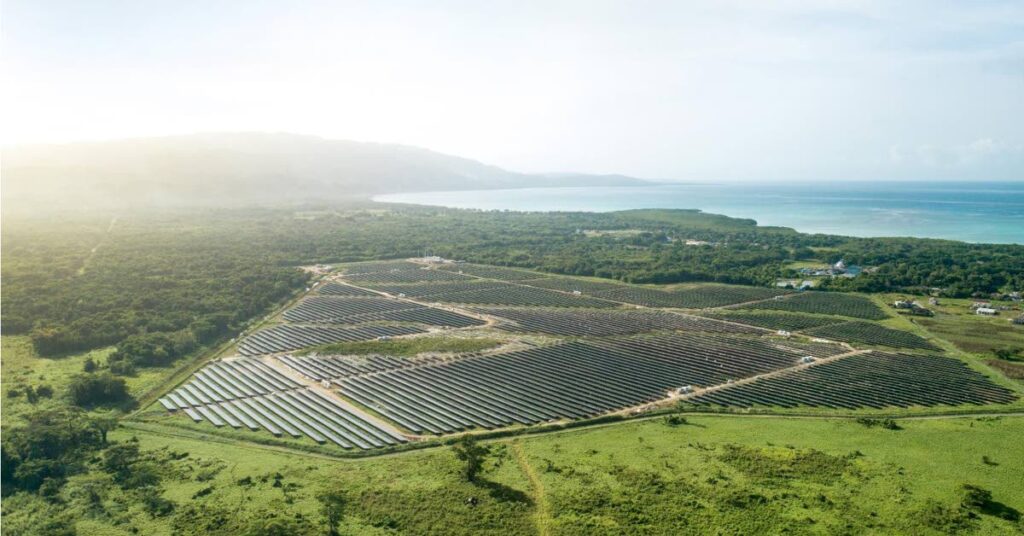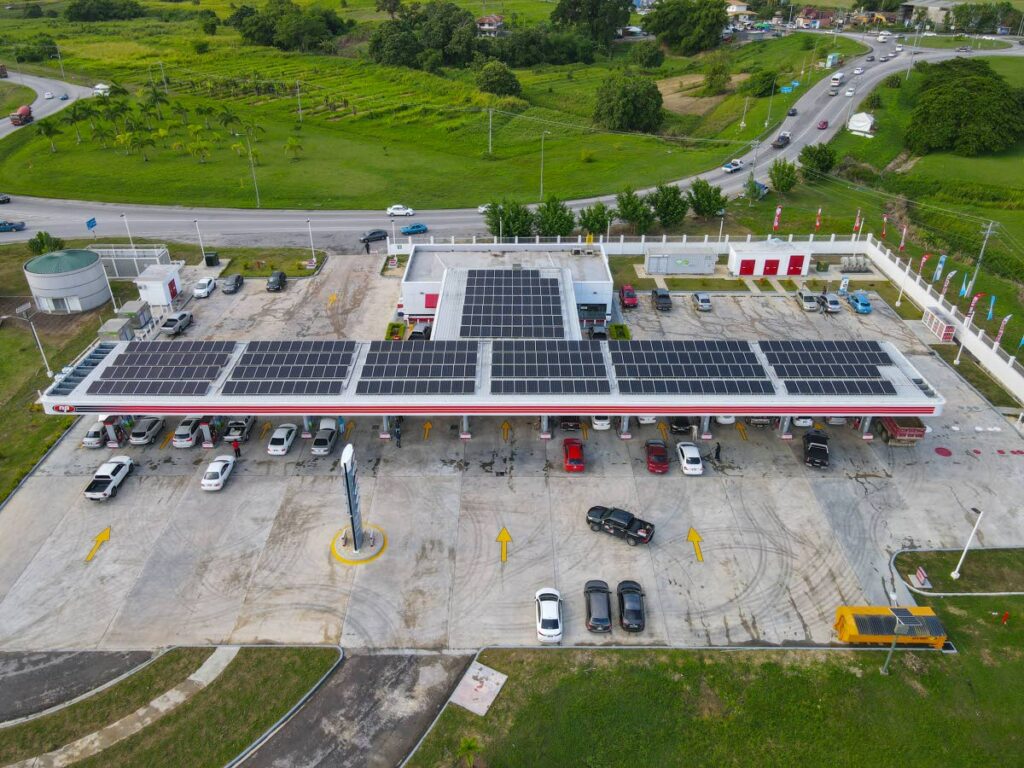Culture change needed for better investment in green projects

The Caribbean is blessed with many opportunities for green energy projects. With its surrounding waters, high winds and clear weather the region is perfect for clean energy ventures such as hydrogen, solar, wind and geothermal projects, which could liberate the region from dependence on fossil fuels.
However, the Caribbean is still far behind in the renewables race. While clean energy is expected to top US$1.4 trillion according to the World Economic Forum, developing regions, such as the Caribbean, remain at levels of investment comparable to that in 2015, when a few hundreds of millions were spent on clean energy.
Still several investors are eyeing the region for its potential to generate clean energy and begin slowing the damage being done by carbon emissions. But several critical elements are needed.
In a panel discussion on the third day of the three-day Caribbean Investment Forum, in Port of Spain last week, it was agreed that chief among these is the need for a culture change, so that people, not companies, see the value of clean energy.
The panel included National Energy Corporation president Vernon Paltoo, Republic Bank's manager of investment banking Michael Mcqilkin, Private Financing Advisory Network, regional coordinator of Latin America and the Caribbean Frederico Fische and Boom Cluster manager Jari Aaltonen. Responding to questions from the moderator, all spoke toward making projects viable to people at the ground level. But it was Paltoo who said he saw it as a critical component of making the region attractive to investors, especially in TT.
Paltoo said TT was in a unique position because on one hand the cost of power is a lot lower than the rest of the region, which makes it less competitive in terms of renewable energy. However, there is a demand for green projects, in light of its high carbon output – which is about 40 million tonnes of CO2 annually – and its commitments to energy transition made in the Paris accord and other similar agreements.
He said people need to recognise the impact of climate change and significance of energy transition.
“That is one of the most important aspects for us as a country,” he said. “We have to recognise why this is needed and not just do it for the sake of doing it. This becomes an issue of ensuring the continuity of life as we know it.”
Paltoo said that if TT adapts education to include energy and climate change issues, it will change the attitude toward going green.

He said National Energy partnered with the educational NGO Pennacool for its renewable minds project. The Pennacool portal provides information to help children understand energy sources and its impact on on the environment. Paltoo said the project was a success, reaching thousands of schoolchildren and hopes it will increase awareness of how people can contribute to a low carbon future.
“We have realised that it has reached its target audience, understanding the importance to the extent that we won a national award – the Amcham TT HSE award – in terms of education for environmental awareness.”
He added that curriculum change was an important aspect of changing the culture toward clean energy.
“We are working with the education minister and the Ministry of Energy to change the curriculum in primary and secondary schools toward a shifting away from traditional sources of power toward more sustainable ones,” he said. “It has to be a holistic intervention in terms of education, from the primary level to the tertiary level.”
The panellists also said legislation, infrastructure, access for small-scale use, employment and coaching opportunities in clean energy projects are also needed to make the region more attractive to investors.
Mcqilkin said political stability and supportive policies are also key.
“That could be in the form of removing tariffs,” he said. “Of course investors need to have the confidence that the overall financial structure will be long-term, so with that comes a strong need for political stability so that these things would not be reversed in five years.”
He added that there was a need to incentivise small-scale use of clean energy. He noted that large-scale companies see the value of energy efficiency and as such are more amenable to adopting clean energy policies and products.
“Small-scale users should also receive benefit from various incentive profiles,” he said.
He also pointed at manufacturing as an avenue to attract investors saying that businesses need to ask what manufacturing in the clean energy sector would look like for the region.
“Are there opportunities to nearshore some of these facilities – be it nearshore or offshore? But it has to create employment opportunities.
“We have to create training and coaching development opportunities for our local populations to participate. That has to happen.”
Fische pointed out that a regulatory framework is also necessary to create a supportive environment for clean energy.
“Sometimes the regulatory framework is proper on paper, but then there are issues of discrepancies between the use of the plans and what the regulators can do,” Fiche said.
Although investment in clean energy in the region is not as high as the rest of the world, the Caribbean is still going in the right direction, the panellists said.
Trinidad's Orange Grove solar PV project which is expected to generate 50,417 MWh of electricity – a power supply that could provide clean energy to about 7,000 households and offset 27,500 tonnes of CO2 a year; the Paradise Park solar project in Jamaica which could save it US$250 million in fossil-fuel purchases over the life of the project, and the Herradura 1 wind project in Cuba – that would generate 51 MWh of electricity – are prime examples of the region’s development in the clean energy sector.
“I think we see every island talking about energy transition and trying to advance it in its own way. I think that it is happening through conferences like this. There are a lot of projects coming forward and it is a step in the right direction,” Mcqilkin said.
Paltoo said to meet TT’s energy demands about 25 gigawatts of electricity would have to be generated.
“In order to harness that quantity of power we have determined that offshore wind would be the most feasible, in light of that studies will be done.”
Other renewable energy options such as geothermal, hydropower and waste water are also being looked at. Paltoo added that National Energy is seeking to partner with other countries to develop these projects.
“Solar alone would not be able to provide our energy needs,” he said. “So we are working with Caricom in order to determine how best we can work to harnessing energy from these sources.”


Comments
"Culture change needed for better investment in green projects"